cat vaccine reaction symptoms
Animals that have had anaphylactic reactions should be treated beforehand with antihistamines if vaccination is mandatory. Allergies to cats are fairly common affecting up to 25 of people who also have other types of allergies.
Fever high temperature Mild swelling around the vaccine site that disappears in two - six weeks.

. Cats should first get the FVRCP vaccine as kittens when possible. Once your cat has been infected with the flu virus it can take up to two weeks for symptoms to appear. There are some common vaccine side effects that often only last a few days and disappear without treatment.
Post-vaccination sarcomas usually involve the fibrous connective tissue under the skin and are often fibrosarcomas. When they do happen they include slight fever lethargy decreased appetite and a localized swelling at the vaccine site. A sarcoma is a term for any cancer of mesenchymal tissues.
Common vaccine side effects. In these cases cats may develop hives rednessswelling around the eyes and lips or a mild fever. A cat allergy can cause symptoms such as red eyes and sneezing.
If any of these signs lasts more than 24 hours or if your pet appears. Mild reactions can include a variety of symptoms such as mild fever lethargy poor appetite sneezing or respiratory problems slight discomfort at the injection site slight swelling at the injection site and vomiting. This occurs because the dogs immune system reacts both locally and systemically to vaccine administration.
Then they should receive doses every month until theyre 16 to 20 weeks of age. These allergies can be triggered by direct exposure to cats or by indirect exposure through fabric or air. Kittens are also likely to develop eye ulcers which can.
The FVRCP vaccine is a core vaccine recommended for all cats. Adverse reactions usually occur because of a harmful immune-mediated reaction to either the vaccine immunogen itself or to the vaccine adjuvants which are designed to boost the immune response to the vaccines. Anyone who cares for his or her cat will want to protect it in this way and vaccination is a critical part of a proper preventive healthcare programme.
Rarely cats will have a more significant allergic reaction to the vaccine which generally happens within a few minutes to a few hours of receiving the vaccine. A vaccine is usually given by an injection. Saiba also hopes to produce a vaccine for dogs.
Like vaccine-induced anaphylaxis the development of fibrosarcomas in response to vaccination in cats is rare estimated between 1 in 1000 and 1 in 10000 vaccinated cats10 Nonetheless if the cat affected is your patient or your pet that statistic is not particularly comforting. Reports of a tumor developing at the site of vaccine injection sites in some animals have led to the suspicion of a link between the vaccine and a disposition in some animals to this type of reaction. It is important to realize that sarcomas have been associated with.
Just as in humans vaccinating your cat helps to protect him or her against several serious andor life-threatening diseases. Low energy lethargy Eating less. Mesenchymal tissues include connective tissues such as skin and muscles bone cartilage peritoneum and blood vessels.
The most common vaccine reactions in dogs are lethargy and soreness which may or may not be combined with a mild fever. In extremely rare cases cats may develop an allergic reaction to the vaccine which. These rabies vaccine side effects usually disappear within a few days.
There may be some soreness at the site of the stimulus which in the case of vaccines means the place where the shot went in. Veterinarians have become concerned with regard to over vaccinating and continual annual vaccination requirements for dogs and cats. Some symptoms you can expect to see include sneezing nasal congestion and discharge and conjunctivitis.
Other symptoms include vomiting diarrhea and itchiness. The immunogens may consist of killed or inactivated pathogens bio-engineered pathogen proteins or polypeptides or increasingly. Your cat will get another dose when they are either.
Classical cat flu follows a short incubation period of 35 days and consists predominantly of upper respiratory tract disease sneezing rhinitis nasal discharge conjunctivitis ocular discharge and oral ulceration. Feline calicivirus FCV is one of the major causes of feline infectious upper respiratory tract disease cat flu. Decreased activity levels fatigue Loss of appetite.
Much of this concern stems from the recent awareness of post-vaccinal complications that can result with currently available biologicals. The signs may be facial swelling itching weakness diarrhea difficulty breathing shock and death. In some cases it also causes oral ulceration and pneumonia.
Kittens should receive their first FVRCP vaccine dose between 6 and 8 weeks of age. World Small Animal Veterinary Association World Congress Proceedings 2003. Although these symptoms.
A stimulated immune system may lead to lethargy. Nasal discharge sneezing coughing or other respiratory symptoms which may occur up to 2 to 4 days after an intranasal vaccine vaccination with drops or sprays via the nostrils is administered. Conjunctivitis pink eye or eye discharge.
Veterinarians routinely recommend certain vaccines for all cats called core vaccines whereas others are used more selectively according to the cats environment and lifestyle. Rabies vaccines are. The development of fibrosarcoma at the injection site of a.
For cats without a history of vaccine reactions the risk of sarcomas is usually outweighed by the benefit of the core vaccines. The companys research has shown the experimental HypoCat vaccine lowered Fel d 1 in cat tears and reduced symptoms in 10 allergic cat owners. Vaccines work by stimulating the bodys immune system to recognize and fight a particular microorganism such as a virus bacteria or other infectious organism.
Some cats will develop a mild reaction that may last for a few days to a week after the vaccination. Depending on the disease the vaccine will. Vaccinating your cat.
In fact side effects of rabies vaccines in cats are very rare. Treatment consists of administration of epinephrine antihistamines and supportive care. Prompting the immune system to respond is the whole point of vaccination.

Update On Feline Injection Site Sarcomas

Side Effects Of Vaccines In Cats Symptoms

Vaccines For Cats We Need To Stop Overvaccinating

Vaccine Related Sarcomas Petfinder

Fvrcp Vaccine For Cats Great Pet Care

Bordetella Vaccine For Cats Uses Doses Side Effects Cattime
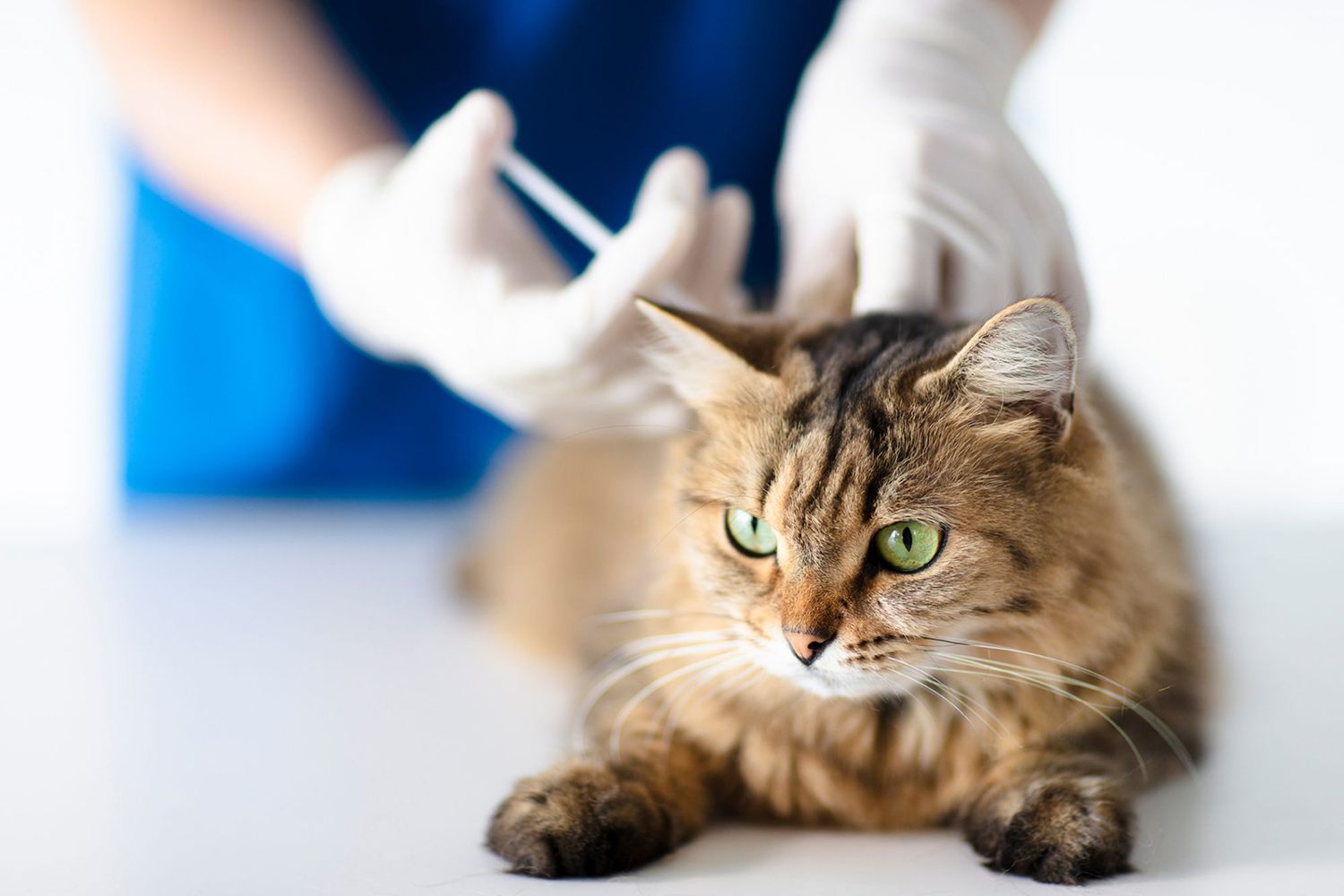
Why Vets Recommend The Distemper Vaccine For Cats Daily Paws
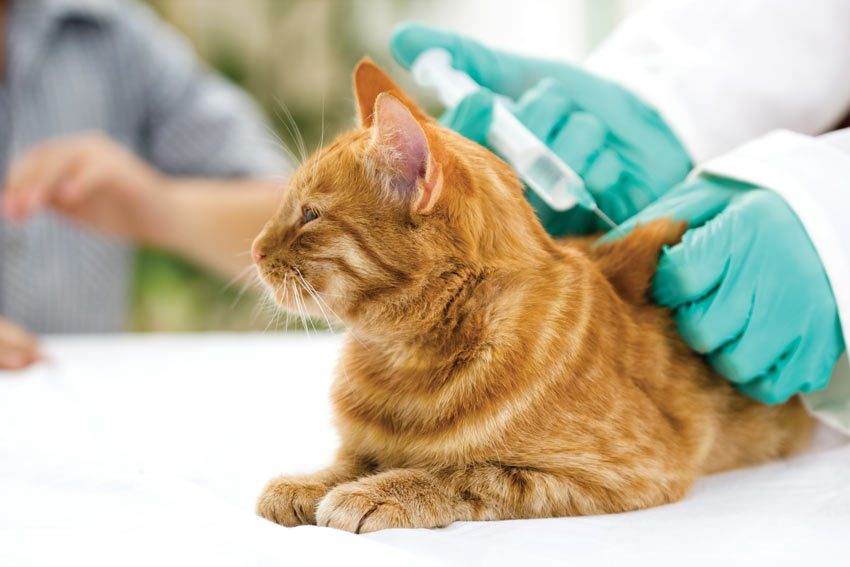
Cat Vaccinations Cat Health Cats Guide Omlet Uk

Why Vets Recommend The Distemper Vaccine For Cats Daily Paws

Feline Injection Site Sarcoma Today S Veterinary Practice
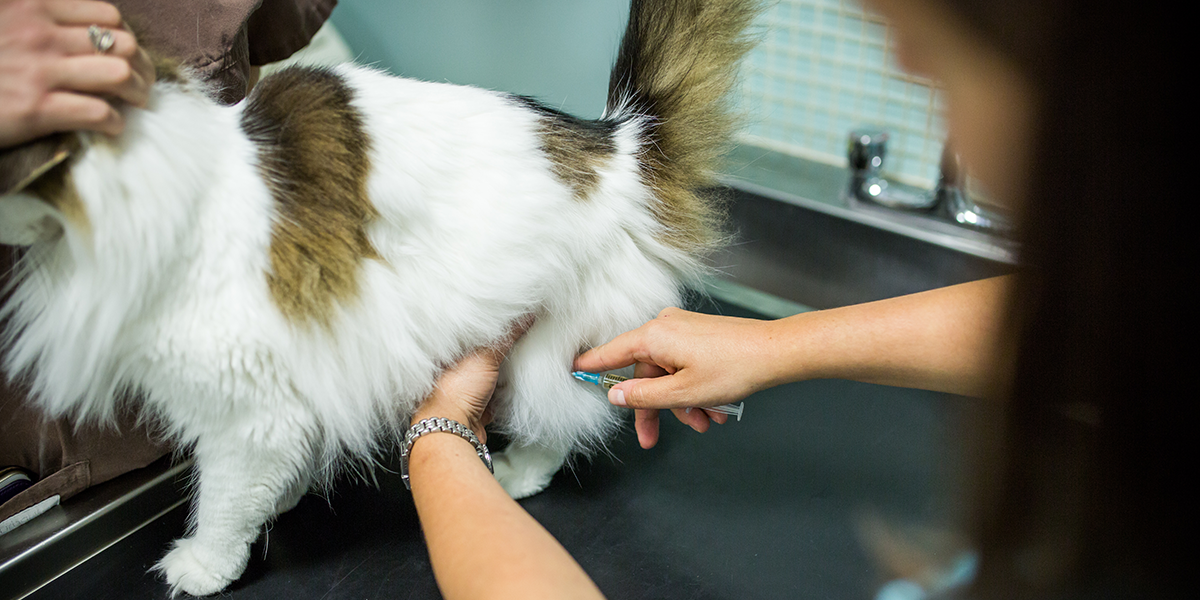
Vaccinating Your Cat International Cat Care

Why The Rabies Vaccines For Cats Is So Important For Your Feline Friend Daily Paws
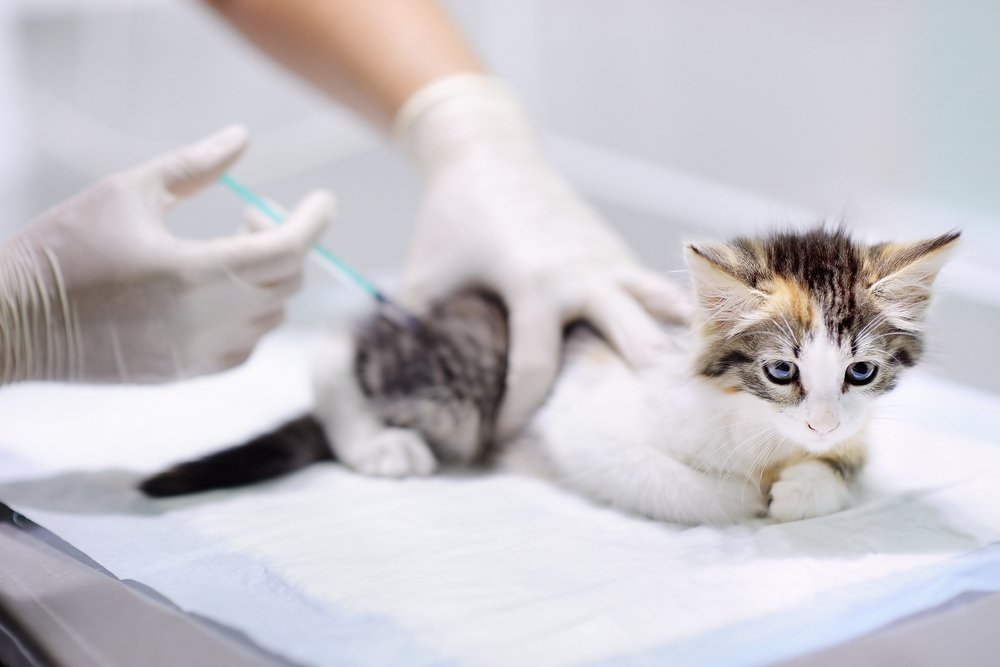
Cat Vaccinations Johnston Veterinarians Rush Animal Care

Cat Dog Vaccine Side Effects And What You Should Know Argyle Vet
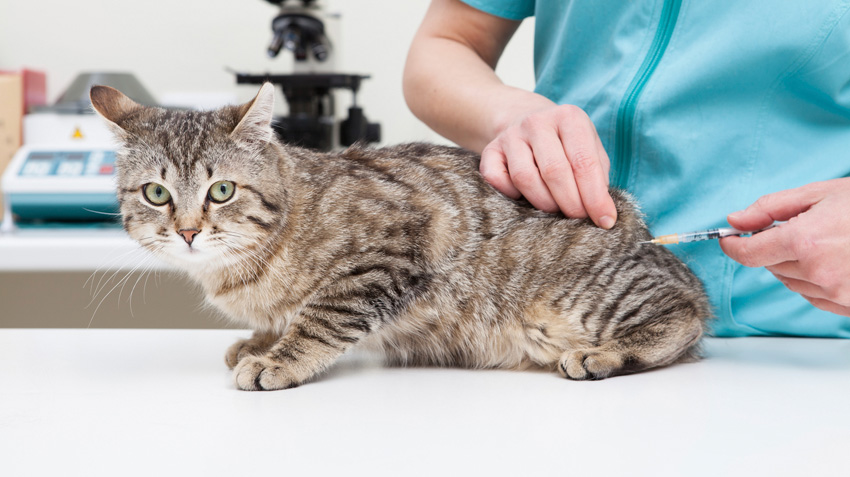
Allergic Reactions Pet Vaccines Dog Cat Vaccination Health

What Are The Side Effects Of Rabies Vaccinations For Cats General Cat Health Youtube

Vaccinated Cats Side Effects And Reactions Lovetoknow

Cat Vaccinations Van Isle Veterinary Hospital
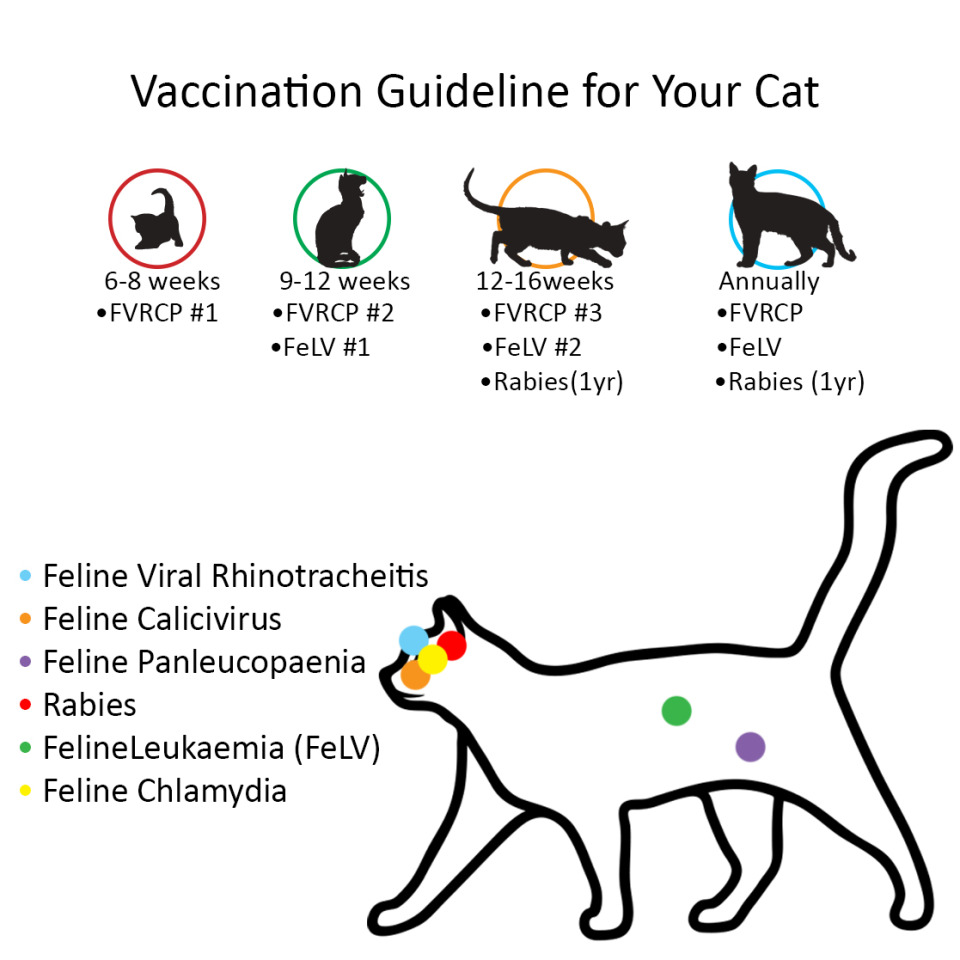

0 Response to "cat vaccine reaction symptoms"
Post a Comment